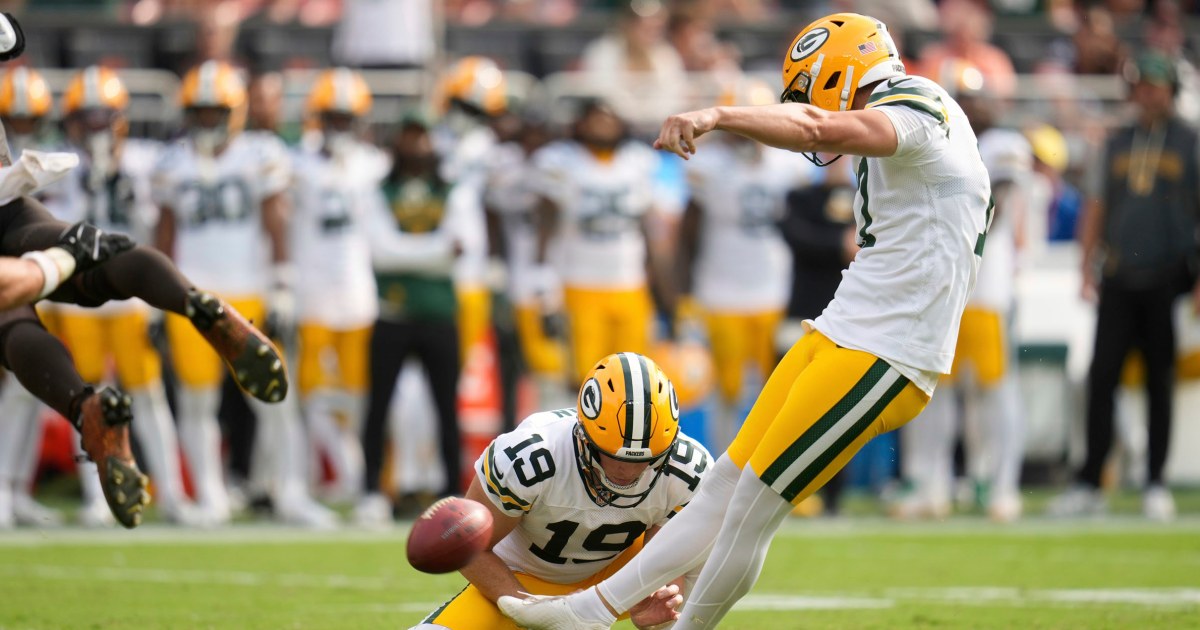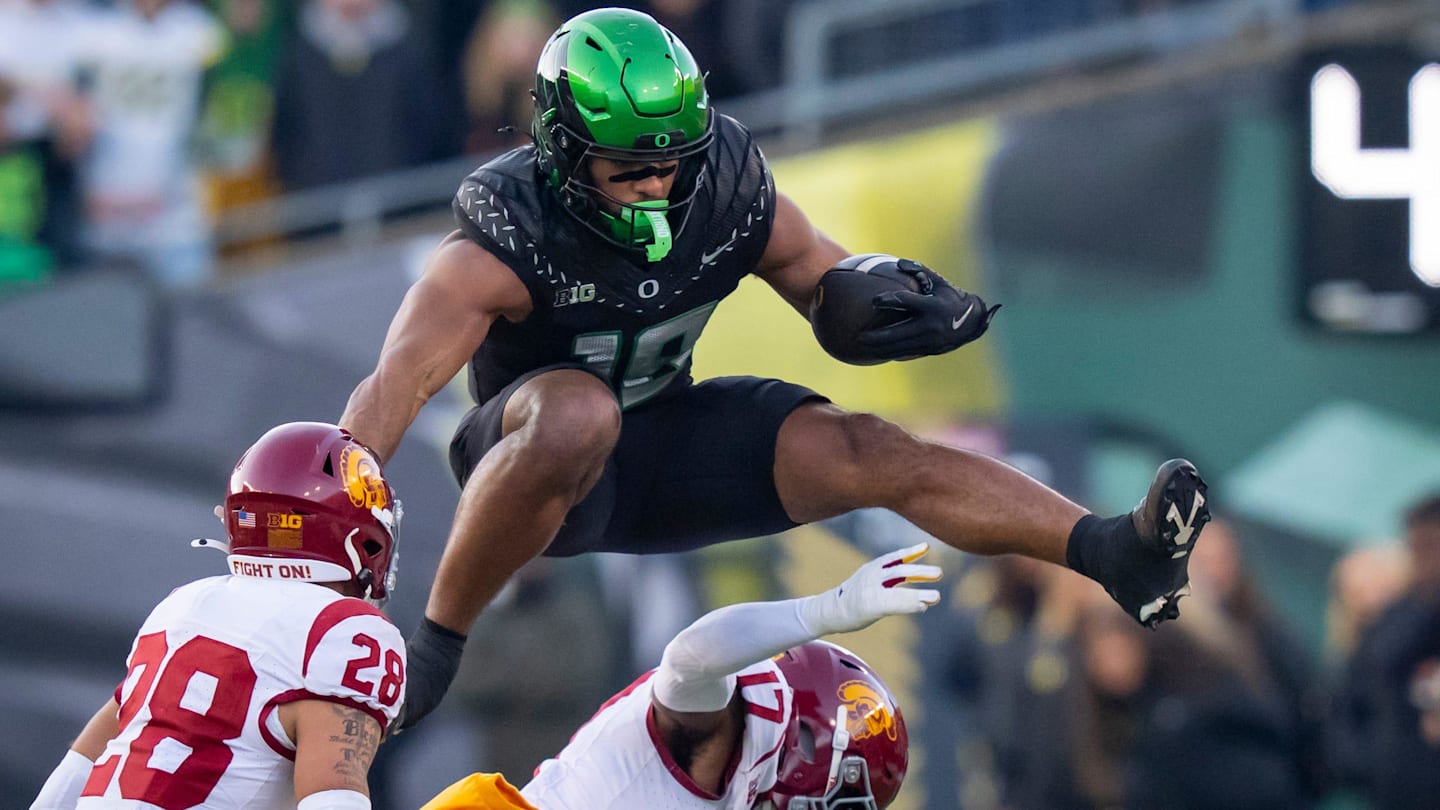Broncos 33-32 Comeback Shocks Giants: Bo Nix and Wil Lutz Lead Victory

Introduction
The Denver Broncos pulled off an incredible comeback against the New York Giants, scoring 33 points in the fourth quarter to win 33-32. This was one of the most stunning turnarounds in NFL history, with the Broncos shutting out for three quarters before their explosive fourth quarter.
Key Details
Bo Nix led the charge, contributing to several key plays, including an 18-yard keeper and setting up the game-winning field goal. Wil Lutz sealed the victory with a 39-yard kick as time expired. The Broncos' ability to maintain composure and execute under pressure was pivotal in their success.
Impact
The Broncos' victory not only marked their fourth consecutive win but also extended their home winning streak to eight games. This remarkable comeback showcases the team's resilience and determination, embodying the mantra that "there's always a way" to overcome adversity in the NFL.
About the People Mentioned
Bo Nix
Bo Nix is an American professional football quarterback currently playing for the Denver Broncos in the NFL. He was born in Arkadelphia, Arkansas, and grew up primarily in Alabama, where he played high school football at Pinson Valley High School, winning multiple state titles under his father’s coaching[5]. He began his college career at Auburn University, where he set multiple school records and was recognized on several award watch lists. At Auburn, he completed 58.7% of his passes for nearly 5,000 yards and 28 touchdowns during his tenure[4]. In 2022, Nix transferred to the University of Oregon, utilizing NCAA eligibility extensions related to COVID-19. At Oregon, he significantly elevated his performance, setting school single-season records for completions (364), passing yards (4,508), and passing touchdowns (45) in 2023. He also set the NCAA single-season record for completion percentage at 77.45% in 2023, breaking the previous record held by Mac Jones. Over his two seasons at Oregon, he led the Ducks to a 10–3 record in 2022, including a Holiday Bowl victory, and a strong 2023 campaign that saw Oregon contend for the College Football Playoff. Nix finished his college career ranked among the NCAA leaders in total yards, touchdowns, completions, and passing yards, starting 61 games—the most in NCAA history for a quarterback[1][2]. Bo Nix was selected as the 12th overall pick in the first round of the 2024 NFL Draft by the Denver Broncos. He quickly became the Broncos' starting quarterback, the first rookie to do so since 1983. In his rookie NFL season, he made history as the first rookie quarterback to complete over 80% of his passes while throwing for at least four touchdowns and 300 yards in a game. He earned NFL Offensive Rookie of the Month honors and showed rapid development with multiple Rookie of the Week awards[3][6][7]. Nix is known for his strong accuracy, leadership, and football lineage—his father, Patrick Nix, was a college quarterback and coach, and his brothers also play college football. Off the field, Bo Nix is noted for his faith, family values, and active partnerships with various brands[5].
Wil Lutz
Wil Lutz is an American professional placekicker for the Denver Broncos of the National Football League (NFL), known for his accuracy and leg strength, particularly on long field-goal attempts.[4][7] Born July 7, 1994, in Newnan, Georgia, Lutz played college football at Georgia State after walking on to the program and went undrafted in 2016 before signing with the New Orleans Saints as a free agent.[3][5] He established himself quickly in New Orleans, setting a Saints rookie record for field goals made and earning a place on the Pro Football Writers Association All‑Rookie Team; over his career with the Saints he became one of the franchise’s most reliable kickers and earned a Pro Bowl selection.[3][2] Lutz is noted for several high‑leverage kicks, including a 58‑yard, game‑winning field goal on Monday Night Football in 2019, and for long streaks of accuracy that included NFL‑level consistency from 50+ yards on multiple occasions.[3][2][5] After six seasons with New Orleans, Lutz joined the Denver Broncos, where he has continued to contribute as the team’s primary kicker and has produced multiple game‑winning kicks and notable long field goals for Denver.[1][7] Statistically, across his NFL tenure through recent seasons he has made the large majority of his attempts, reflecting a career field‑goal percentage that ranks among the league’s more accurate veterans at the position.[7][1] Off the field, Lutz has appeared in community and speaking engagements and is represented for corporate appearances and endorsements.[2] He remains an active NFL player whose immediate relevance is tied to his role as Denver’s placekicker and his ongoing performance in game situations.
About the Organizations Mentioned
Denver Broncos
The **Denver Broncos** are a professional American football team based in Denver, Colorado, competing in the National Football League (NFL) as a member of the American Football Conference (AFC) West division. Founded in 1960 as a charter member of the American Football League (AFL), the Broncos joined the NFL following the AFL-NFL merger in 1970[1][3][7]. Initially struggling in their first decade, with no winning seasons until 1973, the Broncos transformed into a competitive franchise by the late 1970s. Their breakthrough came in 1977 when they reached their first Super Bowl (XII), propelled by the famed "Orange Crush" defense under coach Red Miller[1][2][4]. The arrival of legendary quarterback John Elway in 1983 marked a new era, leading the team to five Super Bowl appearances between 1986 and 1998, winning back-to-back championships in 1997 (XXXII) and 1998 (XXXIII)[1][2][3][4]. After Elway’s retirement, the Broncos remained competitive, notably signing future Hall of Famer Peyton Manning in 2012. Under Manning, Denver reached two Super Bowls, securing victory in Super Bowl 50 in 2016, their third championship[3][4][6]. The team is well-known for its strong fan base and home-field advantage at Empower Field at Mile High, a stadium renowned for its high altitude and passionate atmosphere[3][7]. Currently owned by the Walton-Penner group, the Broncos continue to innovate and compete under new leadership, including head coach Sean Payton who joined in 2023. Their valuation by Forbes in 2025 stands at $6.8 billion, making them the 13th most valuable NFL franchise[3]. The Broncos have a rich history of success, with eight AFC championships and three Super Bowl titles, and have contributed nine members to the Pro Football Hall o
New York Giants
The **New York Giants** are a professional American football team competing in the National Football League (NFL), marking their 101st season in 2025. Established in 1925, the Giants are one of the league’s oldest franchises with a rich history of competitive success, including multiple Super Bowl victories and NFL championships, making them a storied and influential organization in sports[1]. Their operations encompass team management, athletic development, and fan engagement, supported by a robust front office including head coach/general manager Brian Daboll and Joe Schoen. Historically, the Giants have achieved notable success with eight league championships and four Super Bowl titles, highlighting their role as a cornerstone franchise in the NFL. However, recent seasons have been challenging; the Giants finished with a disappointing 3–14 record in 2024, leading to a rebuild phase focused on new talent like linebacker Abdul Carter, selected in the 2025 draft[1][2]. The team aims to rebound in 2025 by addressing roster gaps, particularly in defense, and improving overall team performance to end their 13-year division title drought—the longest active in the NFC[1]. From a business and organizational perspective, the Giants also emphasize player and family support systems. In 2025, they received mixed reviews from the NFL Players Association, scoring highly in coaching and strength training but noting areas needing improvement such as locker room facilities and family communication. The team has introduced a family room at the stadium and enhanced player accommodations, reflecting a commitment to holistic athlete welfare[4]. Technologically, like many NFL teams, the Giants leverage advanced analytics and sports science to optimize player performance and game strategy, integrating data-driven approaches in coaching and player development[2]. Their current status reflects a blend of tradition and innovation as they strive to regain competitive stature while enhancing organizational culture and player support.
NFL
## Overview of the NFL The National Football League (NFL) is the preeminent professional American football organization in the United States, renowned for its massive influence on sports, entertainment, and business. With 32 teams divided between the American Football Conference (AFC) and National Football Conference (NFC), the NFL organizes a 17-game regular season culminating in a single-elimination playoff and the Super Bowl—the most-watched annual sporting event in the U.S.[2] ## History and Evolution Founded in 1920 as the American Professional Football Association (APFA) in Canton, Ohio, the league initially comprised teams primarily from the Midwest and Northeast[1][3]. It was renamed the National Football League in 1922 and faced early instability, surviving competition from rival leagues such as the All-America Football Conference (AAFC) and multiple iterations of the American Football League (AFL)[2]. By the 1950s, the NFL had established a monopoly on professional football in the U.S., with only the Canadian Football League (CFL) operating independently in Canada[2]. The most significant development in NFL history was the 1966 merger agreement with the AFL, which led to a common draft and the creation of the Super Bowl as a championship game between the two league champions[1][2]. The leagues fully merged in 1970, reorganizing into the AFC and NFC and cementing the NFL’s dominance in American professional sports[1][2]. ## Key Achievements and Innovations The NFL pioneered lucrative television contracts, transforming football into a national pastime and a major media event. The league’s adoption of revenue-sharing and salary caps fostered competitive balance, helping small-market teams remain viable[2]. The NFL has also been a leader in sports technology, implementing instant replay, advanced player tracking, and digital platforms for fan engagement. Notable achievements include the expansion to 32 teams, the internationalization of the game through game


















